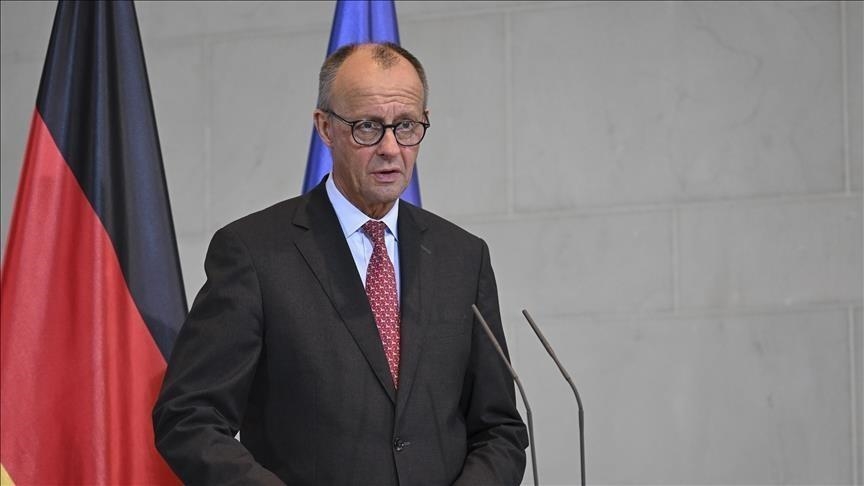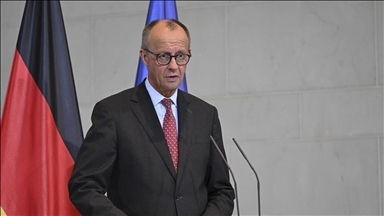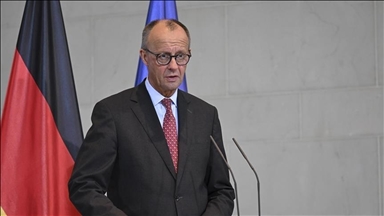EU is in no position to influence events in Mideast, German chancellor says
‘We are witnessing the temporary end of a rules-based, multilateral order grounded in international law. We are in a phase in which the law of the strongest is prevailing in many places,’ according to Friedrich Merz

BERLIN
German Chancellor Friedrich Merz said on Saturday that the European Union is in no position to significantly influence events in the Middle East, even if it wanted to.
“We are witnessing the temporary end of a rules-based, multilateral order grounded in international law. We are in a phase in which the law of the strongest prevails in many places. Nevertheless, accusations directed at the European Union are misplaced. Even if we had wanted to, we would not have been able to decisively influence events in the Middle East,” Merz said in an interview with the Frankfurter Allgemeine Zeitung newspaper.
“Who in Europe has bunker-busting weapons to stop Iran's nuclear weapons program? Who has the means to force the warring parties to a ceasefire? Who among us has the means not only to threaten Hamas with disarmament, but also to enforce it if necessary? We are in a phase of transition to a time in which strength will once again play a greater role and rules-based agreements will fade into the background,” he added.
Merz did say, however, that the EU still has opportunities to exert its influence in the Middle East.
“We don't push ourselves into the spotlight, especially not just as donors. We have opportunities to exert influence in the region—politically, diplomatically, and certainly financially,” he said.
“We are probably the only European country that can work in very good harmony with both the Israeli government and the Arab states. It is always clear that we are not a neutral mediator, but stand firmly by Israel's side,” Merz added.
A staunch ally of Israel, the chancellor has repeatedly invoked Germany’s “historical responsibility” stemming from the Holocaust, describing Israel’s security as a “reason of state.”
However, that moral justification is now in conflict with international law. Despite calls from EU partners to impose sanctions on Israeli ministers and suspend trade agreements over alleged war crimes, Berlin has resisted such measures.
Germany now stands apart from Western allies such as France, the UK, Portugal, Belgium, and Malta, all of whom have formally recognized Palestinian statehood, while Berlin continues to oppose it.
Anadolu Agency website contains only a portion of the news stories offered to subscribers in the AA News Broadcasting System (HAS), and in summarized form. Please contact us for subscription options.







